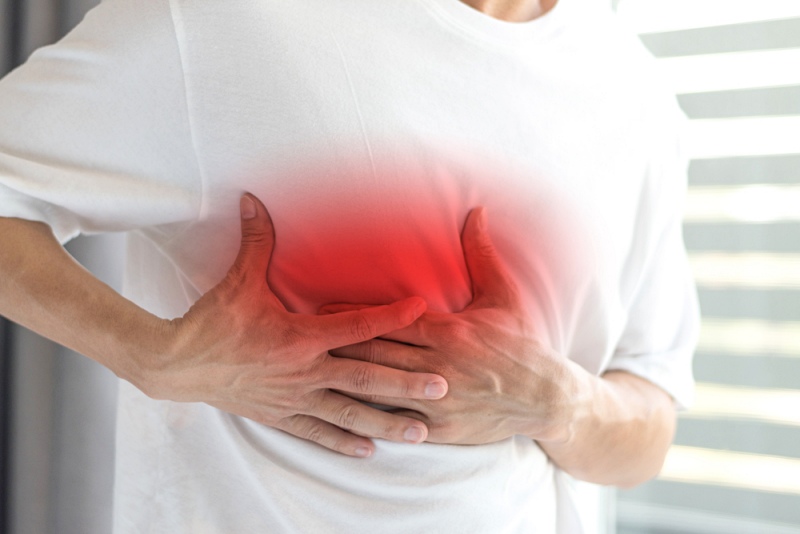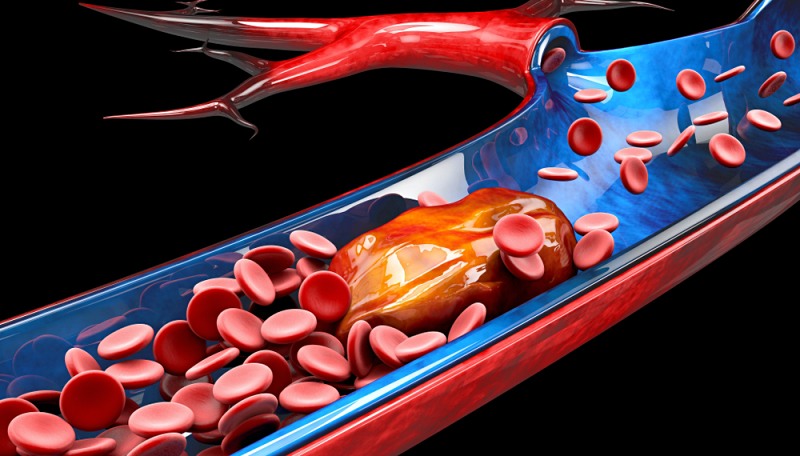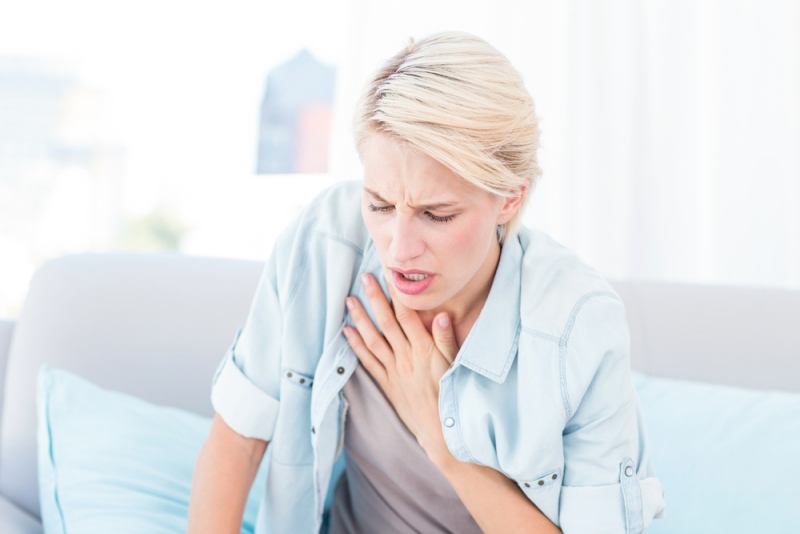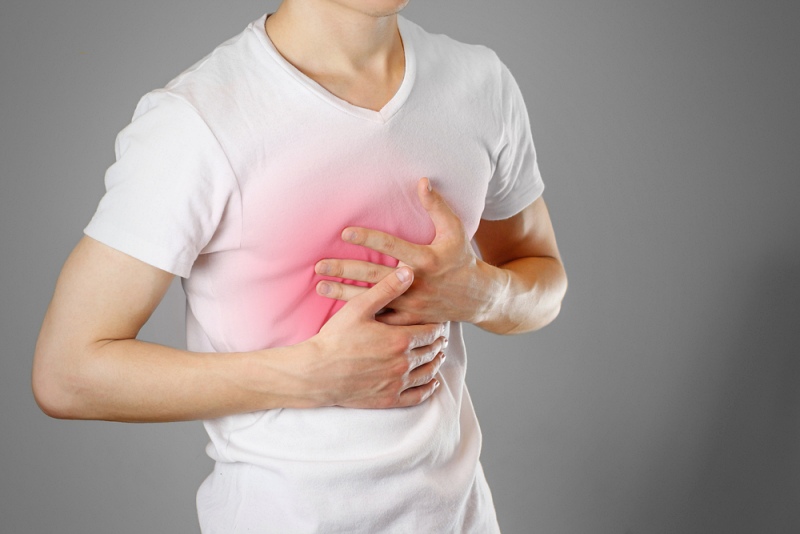How does a pulmonary embolism kill you? Is it possible to stop it before it does? How do you prevent it? Get answers to your urgent queries here.
RELATED: Protect Your Heart with These 13 Natural Blood Thinners
How Does a Pulmonary Embolism Kill You | How Do You Raise Your Chances of Survival?

What Is a Pulmonary Embolism?

Deep venous thromboembolism (VTE) is a disorder where you form a blood clot in your veins. This usually happens in the lower regions—legs, thighs, or pelvis. However, when this blood clot starts to move and flows down your bloodstream, this progresses to a pulmonary embolism.
A pulmonary embolism (PE) happens when a blood clot travels down your lung arteries and blocks the flow of blood to your lungs.
Blood clots are not harmful. In fact, they stop bleeding by plugging wounds. However, when these blood clots form in your veins, do not dissolve, then travel down the bloodstream, they could end up becoming fatal.
How Do You Die from a Pulmonary Embolism?

Your blood is an oxygen and nutrient transport system, while your veins and arteries are one-way highways.
But when you have a pulmonary embolism, the blockage prevents your blood from delivering oxygen to other parts of your body. This could cause damage and stress to your organs.
Your blood pressure could also increase because the right side of your heart has to work harder to push blood down your arteries. But this could also affect the left side of your heart, lowering your blood pressure.
A pulmonary embolism, left untreated, may damage your heart. It may be sudden or could happen within a short time frame.
What Are the Symptoms of a Pulmonary Embolism?

More often than not, a pulmonary embolism stems from a DVT. Understanding the symptoms of a DVT may help prevent PE.
You may be able to tell if you have a DVT in your arm or leg when you notice:
- swelling
- pain
- redness
- warmth
The symptoms of a pulmonary embolism are very hard to catch. In some cases, a pulmonary embolism first manifests upon death.
But before that, you may experience:
- shortness of breath (usually sudden)
- light-headedness
- chest pain (could be worse when you breathe)
- rapid heartbeat, palpitations
- irregular heartbeat
- loss of consciousness
- coughing up blood
- low blood pressure
You might also experience these along with symptoms of DVT.
What Are the Causes and Risk Factors?

Risk factors of PE may include:
- age (risk of VTE increases after age 40)
- sex (women are more likely to develop VTE, but the risk becomes lower than men's after menopause)
- pregnancy
- staying idle
- hormone-based medication
- genetics
Other medical conditions might also increase your chance of developing VTE:
- varicose veins
- obesity
- infections
- spinal cord injury
- trauma
- cancer
- heart conditions
- stroke
- sickle cell disease
RELATED: Angina Attack What to Do | Treatment for Angina
How Do You Diagnose a Pulmonary Embolism?

Book an appointment with your doctor if you suspect that you may have a blood clot.
Prepare information such as:
- family history
- medical history
- current medication or hormone therapy, if any
- past surgeries
- cancer treatments, if any
Some tests can help determine your lung health, your risk of blood clotting, or pinpoint the location of the blood clot.
Your doctor may administer tests and exams like:
- chest x-ray
- blood tests
- ultrasound
- ventilation-perfusion scan
- pulmonary angiogram
- CT scan
- MRI
- echocardiogram
- ECG
These tests could also help determine if your symptoms are because of pulmonary embolism or other medical conditions.
How long before a pulmonary embolism kills you could depend on how serious you are about your health.
Take more proactive measures and see your doctor regularly. Report unusual symptoms as early as you can.
The risk of conditions and diseases increases with age, so do not take symptoms lightly.
How Do You Prevent It?

Head to the doctor's office once you start showing symptoms or think you relate to the risk factors.
Some ways to prevent blood clots include:
- taking blood thinners before or after surgery (upon doctors orders)
- wearing compression stockings
- elevating your legs (10-15 cm high) during bedtime
- regular exercise
- pneumatic compression
Long travel might also raise your risk of pulmonary embolism. If you're planning a long trip, bring a jug with you and stay hydrated. Walk around every hour or move about around every 30 minutes, making sure you don't stay idle while you travel.
Wearing compression socks or stockings could also help improve circulation in your legs. Your legs and lower limbs are the most likely places where blood cots form.
How does a pulmonary embolism kill you? It becomes more fatal by ignoring the signs, risk factors and not taking more proactive approaches to prevent them from developing.
How Long before a Pulmonary Embolism Kills You?

Around a third of patients die of cardiac arrest before they are diagnosed with a pulmonary embolism.
According to the CDC, around 10-30% of PE patients will die within a month.
The fact that the symptoms of a pulmonary embolism vaguely point to a pulmonary embolism makes this disorder very dangerous. To add to that, it's also highly unpredictable. And for 25% of PE patients, death is the first symptom.
How long before a pulmonary embolism kills you may depend on how quickly you act. While it is hard to catch, there are things you can do to help prevent it.
How Painful Is a Pulmonary Embolism?
You may feel chest pain, which could get worse as you breathe. You might describe it as a sharp and stabbing pain underneath your breastbone.
You might find yourself curling up due to the unbearable pain.
Check out this video to learn more on how blood clots can turn into a pulmonary embolism:
How does a pulmonary embolism kill you? A large factor could be your inaction!
PE symptoms are non-specific and unpredictable, making them hard to spot. However, the moment you do it's best to approach your doctor or rush to the emergency room.
Move around as much as possible especially while traveling. If you spot signs of DVT, have it checked out by your doctor before it progresses to a PE.
You Might Also Like:
- Best Foods to Lower High Blood Pressure
- 17 Foods to Lower High Blood Pressure Without Medication
- How to Burn Fat While Sleeping | 9 Stress-Free Ways to Burn Fat While Sleeping
Please stay connected with us on Facebook, Twitter, Instagram, and Pinterest, and make sure to join our community of healthy living and minded people here.
Trending
Get Updates
SIGN UP FOR OUR NEWSLETTER TODAY

10 Healthy Carbs To Add To Your Diet

11 Essential Oils For High Blood Pressure

10 Ylang Ylang Essential Oil Benefits
Related

10 Healthy Carbs To Add To Your Diet


